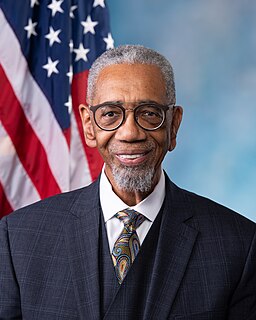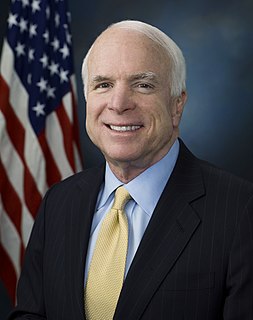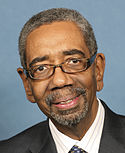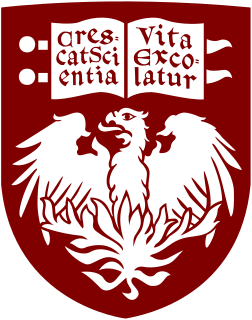
Peter Gosselin Fitzgerald is a former United States Senator from Illinois. A Republican, he served from 1999 until his retirement in 2005. Fitzgerald defeated the Democratic incumbent in 1998, becoming the first Republican senator from Illinois to win a U.S. Senate race in 20 years. He had previously served in the Illinois State Senate from 1992 to 1998.

The 2004 United States Senate elections were elections for one-third of the seats in the United States Senate which coincided with the re-election of George W. Bush as president and the United States House election, as well as many state and local elections. Senators who were elected in 1998, known as Senate Class 3, were seeking re-election or retiring in 2004. This was the third consecutive election for Senate Class 3 where the Democrats failed to end up with a net gain. This also marked the first time since 1980 in which a presidential candidate from either party won with coattails in the Senate. As of 2018, these are the last elections held during a Presidential election year in which the Republicans made a net gain of seats.

Bobby Lee Rush is an American politician, activist, pastor, and the U.S. Representative for Illinois's 1st congressional district, serving in Congress for more than two decades; he was first elected in 1992 and took office in 1993. He has since won consecutive re-election. The district was located principally on the South Side of Chicago, with a population from 2003 to early 2013 that was 65% African-American, a higher proportion than any other congressional district in the nation. In 2011 the Illinois General Assembly redistricted this area following the 2010 census. While still minority-majority, since early 2013 it is 51.3% African American, 9.8% Latino and 2% Asian. He was re-elected in 2016. A member of the Democratic Party, Rush is the only politician to have defeated Barack Obama in an election, which he did in the 2000 Democratic primary for Illinois' 1st congressional district. A civil rights activist during the 1960s, Rush founded the Illinois chapter of the Black Panthers.

The 2004 United States Senate election in Illinois was held on November 2, 2004. Incumbent Republican U.S. Senator Peter Fitzgerald decided to retire after one term. The Democratic and Republican primary elections were held in March, which included a total of 15 candidates who combined to spend a record total of over $60 million seeking the open seat.
The following is a timeline of major events leading up to and immediately following the United States presidential election of 2008. The election was the 56th quadrennial United States presidential election. It was held on November 4, 2008, but its significant events and background date back to about 2002. The Democratic Party nominee, Senator Barack Obama of Illinois, defeated the Republican Party's nominee, Senator John McCain of Arizona.
The US state of Illinois is a Democratic stronghold and one of the "big three" Democratic states alongside California and New York. It is considered one of the most Democratic states in the nation and following the 2018 elections, all six statewide elected offices are held by a Democrat.

The 2008 United States presidential election in Iowa took place on November 4, 2008, in Iowa, as part of the 2008 United States presidential election. Voters chose 7 representatives, or electors to the Electoral College, who voted for president and vice president.

The 2008 United States presidential election in Massachusetts took place, as in all 50 states and D.C., as part of the 2008 United States presidential election of November 4, 2008. Voters chose 12 representatives, or electors to the Electoral College, who, in turn, voted for the office of president and vice president.

Barack Obama served three terms in the Illinois Senate from 1997 to 2004, when he was elected to the United States Senate. During this part of his career, Obama continued teaching constitutional law part time at the University of Chicago Law School as he had done as a Lecturer from 1992 to 1996, and as a Senior Lecturer from 1996 to 2008.

The United States Senate career of Barack Obama began on January 3, 2005 and ended on November 16, 2008. He resigned his seat in the U.S. Senate upon being elected President of the United States. Obama won the seat in an election against Alan Keyes who replaced Republican Primary election winner Jack Ryan.

The 2008 United States presidential election in Colorado took place on November 4, 2008, as a part of the 2008 United States presidential election throughout all 50 states and the District of Columbia. Voters chose 9 representatives, or electors to the Electoral College, who voted for president and vice president.

The 2008 United States presidential election in Oregon took place on November 4, 2008, and was part of the 2008 United States presidential election. Voters chose 7 representatives, or electors to the Electoral College, who voted for president and vice president.

The 2008 United States presidential election in Illinois took place on November 4, 2008, and was part of the 2008 United States presidential election. Voters chose 21 representatives, or electors to the Electoral College, who voted for president and vice president.

The 2008 United States presidential election in Arizona took place on November 4, 2008, and was part of the 2008 United States presidential election. Voters chose 10 representatives, or electors to the Electoral College, who voted for president and vice president.

The 2008 United States presidential election in Delaware took place on November 4, 2008, and was part of the 2008 United States presidential election. Voters chose 3 representatives, or electors to the Electoral College, who voted for president and vice president.

The 2008 United States presidential election in West Virginia took place on November 4, 2008, and was part of the 2008 United States presidential election. Voters chose 5 representatives, or electors to the Electoral College, who voted for president and vice president.

The 2008 United States presidential election in Maryland took place on November 4, 2008, and was part of the 2008 United States presidential election. Voters chose 10 representatives, or electors to the Electoral College, who voted for president and vice president.

The 2008 United States presidential election in South Carolina took place on November 4, 2008, and was part of the 2008 United States presidential election. Voters chose 8 representatives, or electors to the Electoral College, who voted for president and vice president.

The 2006 congressional elections in Illinois were held on November 7, 2006 to determine who will represent the state of Illinois in the United States House of Representatives.

Elections were held on November 2, 2010, to determine Illinois's 19 members of the United States House of Representatives. Representatives were elected for two-year terms to serve in the 112th United States Congress from January 3, 2011, until January 3, 2013. Primary elections were held on February 2, 2010.

















